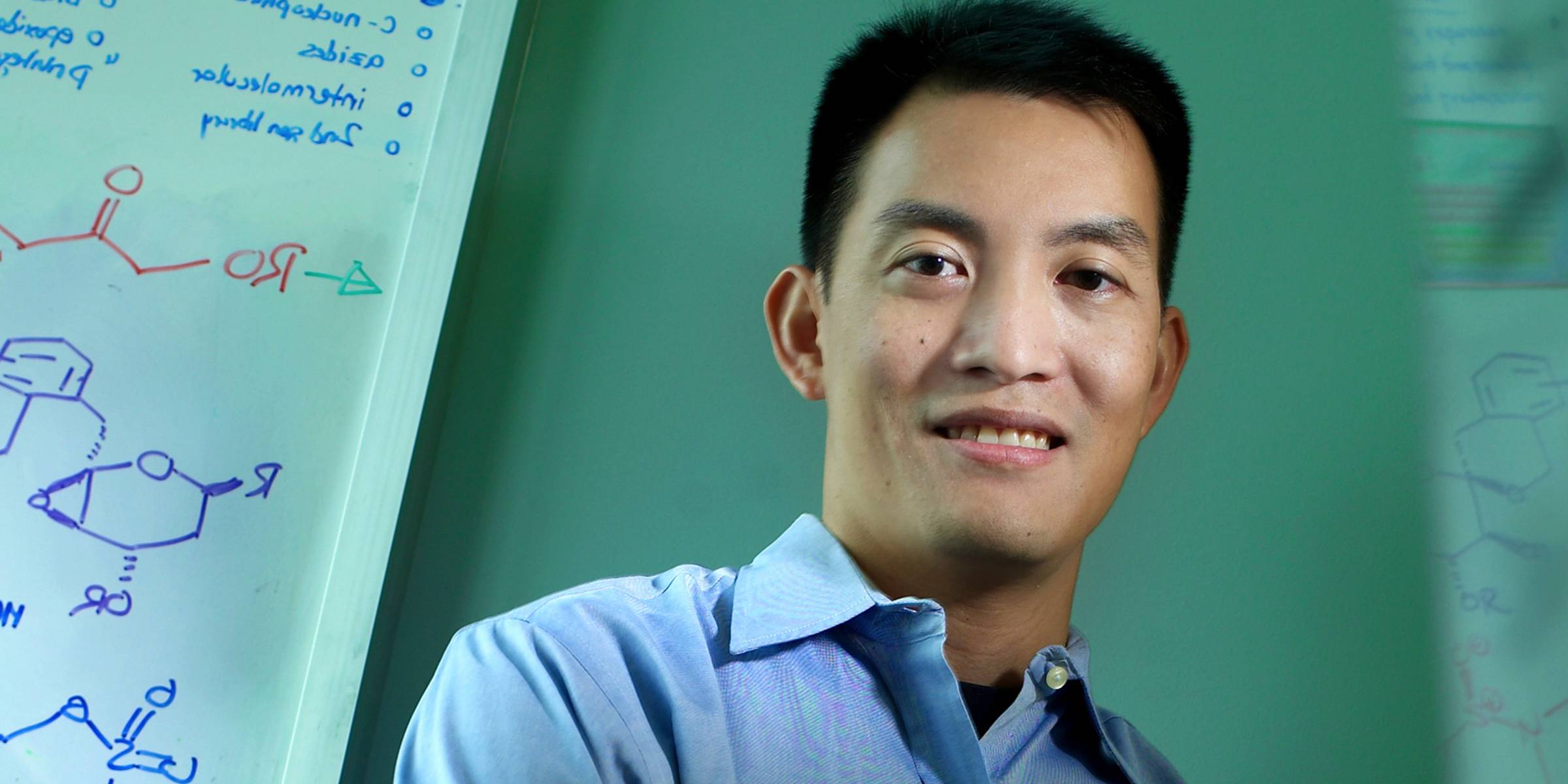Derek S. Tan, Ph.D.
Tri-Institutional Professor
Director, Tri-Institutional Ph.D. Program in Chemical Biology
Chairman, Chemical Biology Program, Memorial Sloan Kettering Cancer Center
Advances in genomics have revealed myriad new potential therapeutic targets. However, existing small-molecule drugs address only a small subset of targets encoded in the human genome. Efforts to expand beyond this have been thwarted by a heavy focus on a correspondingly narrow range of chemical structures in drug discovery. To address this problem, Tan’s lab leverages insights from natural products in rational drug design and diversity-oriented synthesis to identify novel small-molecule ligands for a variety of targets. They leverage multidisciplinary collaborations with biologists to use these molecules to probe complex biological processes and to pursue new therapeutic opportunities in cancer and infectious diseases.
In the area of rational drug design, the lab has developed potent sulfonyladenosine inhibitors of adenylate-forming enzymes, a mechanistic superfamily implicated in a wide range of biological processes. Leveraging structural and mechanistic information, they have developed new antibiotic lead compounds that inhibit enzymes required for bacterial virulence and semisynthetic protein inhibitors of ubiquitin-family E1 activating enzymes that have revealed dramatic active site remodeling during catalysis.
In the area of diversity-oriented synthesis, the lab uses structural motifs found in biologically active natural products as starting points for library design. At the core of these efforts is the development of new synthetic routes to provide flexible, efficient, systematic access to these structures. The resulting libraries access distinct regions of chemical space compared to conventional drug-like libraries and have led to the discovery of novel antiparasitic drugs for Chagas disease and malaria.
Tan is the director in the Tri-Institutional Ph.D. Program in Chemical Biology based at Memorial Sloan Kettering Cancer Center [profile].
